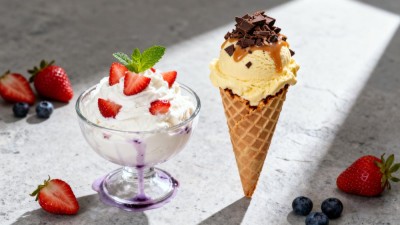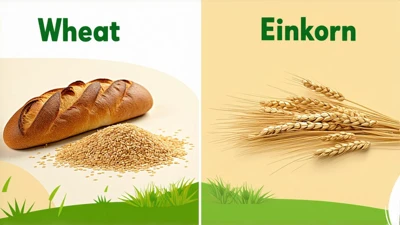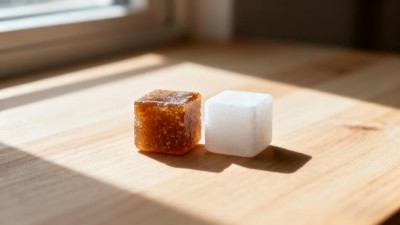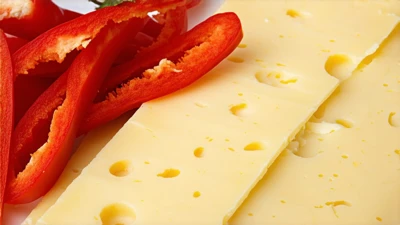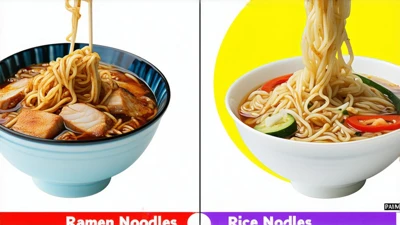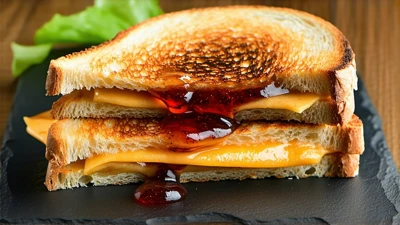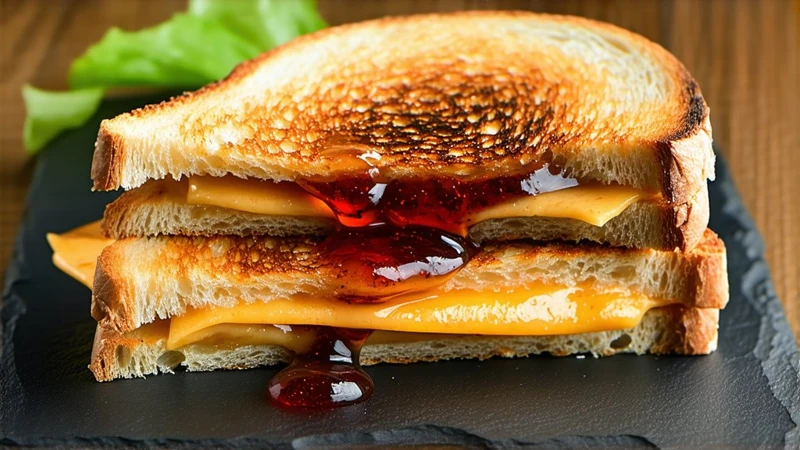
Peanut Butter & Jelly vs. Grilled Cheese: A Data-Driven Sandwich Showdown
"Bread and butter makes a man's heart good." (Proverbs 30:33, paraphrased)
When it comes to classic comfort food, not many sandwiches can compare to the nostalgic appeal of a Peanut Butter and Jelly (PB&J) sandwich or a gooey Grilled Cheese. Both have earned permanent places in American culinary culture, but which one really reigns supreme? So let's look at the data, the history, and the personal experiences to settle this debate once and for all.
Nutritional Comparison: PB&J vs. Grilled Cheese
The value of a sandwich is often judged by its nutritional profile. Here's a breakdown of a standard PB&J (2 slices white bread, 2 tbsp peanut butter, 1 tbsp jelly) vs. a classic Grilled Cheese (2 slices white bread, 1 slice cheddar, 1 tbsp butter).
| Nutrient | PB&J | Grilled Cheese |
|---|---|---|
| Calories | 380 kcal | 400 kcal |
| Protein | 13g | 10g |
| Fat | 18g (12g unsaturated) | 19g (9g saturated) |
| Carbohydrates | 42g | 36g |
| Fiber | 3g | 1g |
| Sodium | 250mg | 600mg |
| Sugar | 20g | 3g |
The Bottom Line: Though PB&J wins with more protein and fiber than Grilled Cheese, it has noticeably more sugar. Grilled Cheese provides more calcium (20% DV vs. 2% DV), and although it has higher sodium and saturated fat.
Haul Winning Pieces: How Each Sandwich Does The Most
PB&J: High in monounsaturated fats (from the peanut butter), vitamin E, and potassium. Jelly provides a hit of antioxidants (if made with real fruit).
Grilled cheese: High in calcium and vitamin B12 (thanks to cheese), and butter adds fat-soluble vitamins A and D.
Personal Opinion: I love the protein-and-carbs balance of PB&J for kids' energy needs, but when the weather gets cooler and a sandwich needs to be hot and comforting, Grilled Cheese takes the win.
Flavor Face-Off: Sweet vs Savory
The sweet-and-salty contrast of PB&J is iconic, and even those with a killer sweet tooth can appreciate a sugary indulgence. Grilled Cheese provides that umami-rich, creamy satisfaction usually enhanced with toasty bread and melted cheese. According to a 2023 survey by Food Network, just 58 percent of Americans are more savory-sandwich people, which puts Grilled Cheese at a slight advantage when it comes to general appeal.
Target Audience & Cultural Impact
PB&J: PB&J is about as synonymous with childhood as it gets, a lunchbox staple since the 1940s. That made it a World War II ration staple that was cheap and shelf stable.
Grilled Cheese: A budget-friendly meal created during the Great Depression, it is now a diner standard and a canvas for gourmet interpretations (truffle oil, artisanal cheeses, etc.).
TABLE 4: "QUARTS GENERATIONS" (Data)
| Age Group | PB&J Lovers | Grilled Cheese Lovers |
|---|---|---|
| Gen Z | 45% | 55% |
| Millennials | 40% | 60% |
| Gen X | 50% | 50% |
| Baby Boomers | 65% | 35% |
Analysis: Older generations hold onto PB&J nostalgia, but younger generations lead with Grilled Cheese's versatility.
Health Impacts & Adaptations to Diet
PB&J: High in sugar (especially commercial jellies) and calories, but substituting whole fruit for jelly or using whole-grain bread improves nutrition.
Grilled cheese: High in sodium and saturated fat could increase heart disease risk. Low-sodium cheese or avocado oil make it less of a guilty indulgence.
Allergen Awareness
PB&J is off-limits for those with nut allergies (1.2% of U.S. population), Grilled Cheese removes dairy-free diets (65% of households occasionally avoid dairy).
Cost & Preparation Time
And PB&J wins on both affordability and speed: If I pack PB&J in other combinations, it makes up my kids' lunch 3-4 times a week, but they eat some pretty miserable food in those other combinations.
Cost per Serving:
PB&J: $0.75 (store-brand peanut butter, jelly, bread).
Grilled Cheese: $1.50 (cheddar, butter, bread).
Prep Time: 2 minutes for PB&J; 10 minutes of cooking time for Grilled Cheese.
Scriptural Reflection
"The plans of the diligent lead surely to abundance, but everyone who is hasty comes only to poverty" (Pr. 21:5). For those who are short on time, PB&J is the conscientious pick.
Popular Rules or Frequently Used Rules
PB&J is as American as it gets, with 90% of households in the U.S. buying peanut butter every year.
Grilled Cheese has international cousins — France's Croque Monsieur, Mexico's Quesadilla — but is an American comfort classic.
Environmental Impact
PB&J: About 4.7 gallons of water are needed to make an ounce of peanuts, but their production releases less greenhouse gases than dairy.
Grilled Cheese Product: 13.5 kg (of CO2) per kg, mostly from cow flatulence during cheese production.
Eco-Tip: Choose almond butter (less water usage) or plant-based cheese to lower your footprint.
Nostalgia Factor
PB&J calls to mind childhood simplicity, and Grilled Cheese is associated with family dinners and rainy-day meals. A 2022 study from Yale University concluded that comfort foods stimulate the release of dopamine, explaining their timeless appeal.
Conclusions: Who Wins the Sandwich?
The verdict depends on the order of your priorities:
For a quick, protein-packed, budget-friendly meal best for kids or picnics, go PB&J.
When you want to feel warm, or get some calcium, or have a versatile foundation for gourmet experimentation, choose Grilled Cheese.
My Own Verdict: I'll always love the simplicity of PB&Js, but Grilled Cheese's potential to be layered with bacon or serve as an accompaniment to tomato soup puts it on top for me as the ultimate comfort food.
"Whether therefore ye eat, or drink, or whatsoever ye do, do all to the glory of God" (1 Corinthians 10:31). So, enjoy your sandwich, whatever you get!
Sources: USDA FoodData Central, Food Network Surveys, Yale University, Statista











